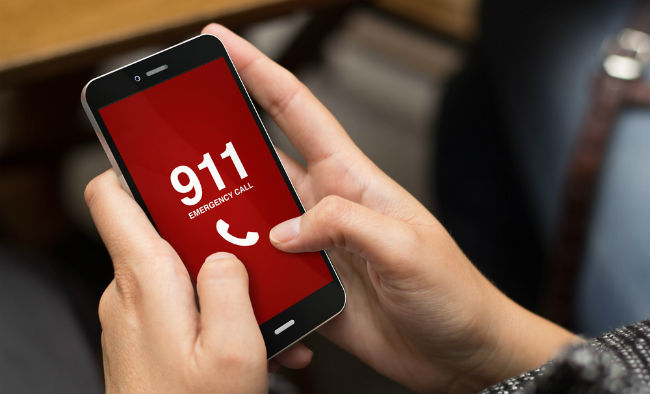
John Oliver spent a few minutes yesterday highlighting some profoundly serious flaws in the 911 system, which you can see below. By far the most shocking to many people is the fact that if you call from a cell phone, 911 may not be able to find your location. Yet if you boot up, say, Facebook, it can tell you what building you’re in. So why can a site that lets millions read coleslaw reviews easily find you, but paramedics can’t?
An Accurate Illusion
The big misconception here is that Facebook and your other apps have access to technology that 911 operators don’t. In fact, the reverse is true: Facebook has access to technology originally developed for 911. Any app that can track your location is, in reality, pulling off a sort of magic trick, hiding the exact processes it uses to figure out where you are to seem more accurate than it really is.
Apps generally have access to GPS data on your phone; in fact, Facebook has attempted to activate that GPS without asking first in the past, but even that isn’t as accurate as you might think. The Global Positioning System is an amazing feat of engineering, but it’s also a satellite network with all the attendant weaknesses. If you’re in an urban area, or the GPS “constellation” has shifted position, it can take several minutes for a dedicated GPS device to lock onto a satellite and start giving you location data.
So your smartphone uses assisted GPS, or A-GPS. Basically, it gets a rough fix on where you are, and uses other data, such as triangulating data from cell-phone towers and other check-ins in the area or iOS’ secretly collected tracking data, to offer a guess. It helps that humans are more predictable than we like to think. If you go to the same bar every Friday, your phone will quickly twig to that, especially if you tag a post on an app or a photo you take with the GPS coordinates.
Hard To Find
So why does the technology for an app to find you even exist in the first place? It was supposed to improve the ability to find people who called 911 from a cell phone. In the early 2000s, in fact, Sprint had Enhanced 911 chips that provided a GPS location that pretty much resembled the GPS you have on your phone now. By this point, enhanced 911 chips in most phones use A-GPS to provide a location.
The problem is that raw location data isn’t usually very accurate. Verizon notes on its website that accuracy depends heavily on a number of factors, including weather conditions, whether you’re indoors or outdoors, and overall reception quality. Even then, Verizon only promises accuracy most of the time, and when everything goes right, it’s still only accurate between 50 and 150 meters. Depending on where you are, that could mean 911 only knows what city block you happen to be on.
And there are issues we don’t have the technology to solve yet. Part of the reason Google is mapping the interior of public spaces is that GPS was never designed to provide others with your exact location. It was originally built to improve missile targeting systems on submarines. It didn’t matter where the target was; they were going to be radioactive dust about 30 seconds after being locked onto. Finally, all of this assumes 911 dispatchers can even receive your location digitally in the first place. Not all 911 dispatch centers are E-911 enabled, even in 2016.
State Of Emergency
As Oliver notes, part of the issue is that there’s no centralized authority and 911 services don’t answer to any one state or federal body. Without that, and without the funding that comes from such a governing body, emergency services can only achieve so much. We shouldn’t sell current 911 services short, though: With just phone calls, they’re able to save thousands of lives every year. But we also shouldn’t deny them the tools to save thousands more.
